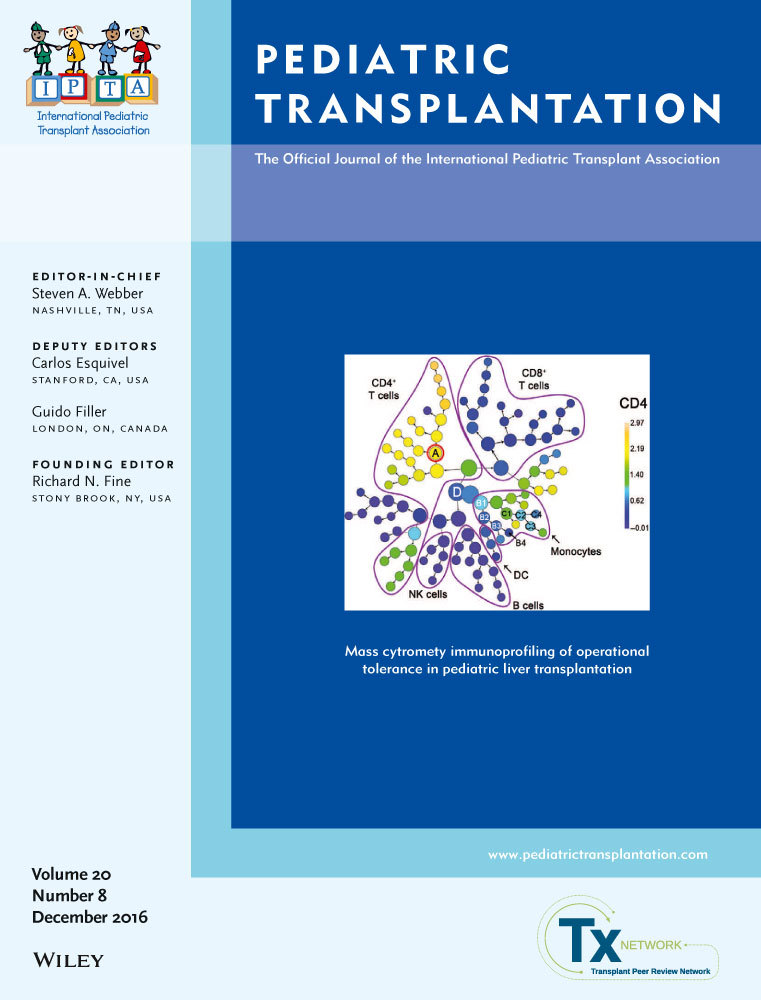Decitabine prior to salvaged unrelated cord blood transplantation for refractory or relapsed childhood acute leukemia
Abstract
No clinical studies have investigated the role of decitabine as a part of the myeloablative conditioning regimen prior to UCBT for refractory or relapsed childhood AL in patients in NR status. The aim of this study was to identify the potential benefits of decitabine as a prior therapy before salvaged unrelated UCBT for refractory or relapsed childhood AL. Eight consecutive patients with childhood refractory/relapsed AL were enrolled in our study between 2013 and 2014. All patients were in NR status before the time of transplant and had features associated with poor outcomes, such as CNSL, MDS-AML, high WBC count at diagnosis, and hypodiploid status (FLT3+/ITD+). Additionally, all patients had one of the following disease statuses: PIF, multiple relapse, or early relapse. All transplants were performed with decitabine as part of the myeloablative conditioning regimen, which was decitabine+Flu/Bu/CY±BCNU or decitabine+Ara-c/BU/CY2±BCNU. A total of seven patients (7 of 8) achieved neutrophil engraftment and platelet engraftment, and one patient experienced primary graft failure. All eight patients (100%) developed PES at a median of 7 days. Three patients developed stage II-IV acute GVHD at a median of 18 days. Additionally, three patients developed chronic GVHD, but it was not extensive in any of those three patients. The median follow-up time after CBT was 19.9 months (range, 9.2–30.7 months). The estimated probability of OS was 75%. Two patients (2 of 8) experienced a testis relapse, and two patients (2 of 8) died. Our experience suggests that the additional application of decitabine as part of the myeloablative conditioning regimen prior to UCBT for refractory or relapsed childhood AL among patients who are not in remission is safe and might be an effective treatment option.




